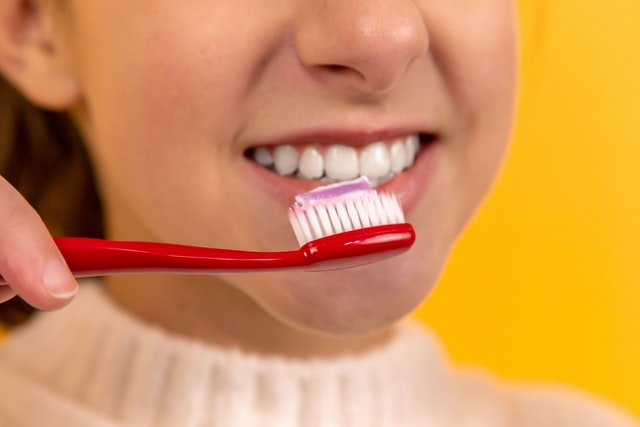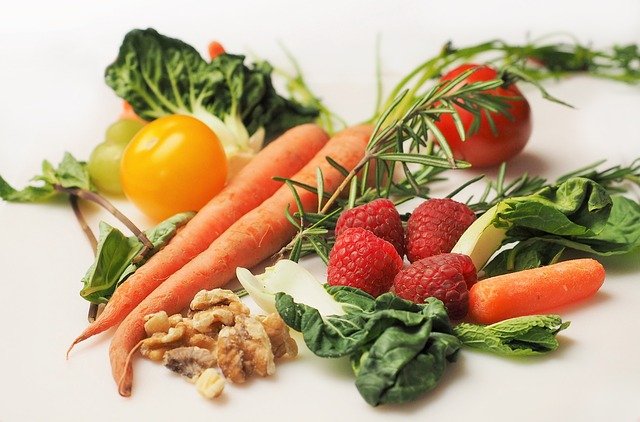Strong teeth and healthy gums are critically important for overall health and well-being. Overall health comes from a proper diet. Just as the food and vitamins you ingest build strong bones, your teeth and gums also reflect what you eat. Eating food that promotes strong teeth and gums can make the difference between a healthy smile and frequent visits to the dentist. Starchy and sugary foods are culprits in tooth decay and gum disease because bacteria love that environment.

Food is as important for healthy teeth and gums as your oral hygiene. Eating foods that are bad for teeth can completely undo fastidious brushing and flossing. Some foods encourage tooth decay while other foods fight it. Which foods are best for teeth and gum health? In this article, you’ll learn the “good” foods for keeping your teeth healthy and the “bad” foods that can cause decay and disease.
At Sninski & Schmitt Family Dentistry, your Holly Springs and Cary dentists, we counsel patients on how to improve their diets and, as a result, build and maintain healthy teeth and gums. We can help you determine what to change in the food you eat so you can be sure you are working toward strong and healthy teeth and gums.
“Good” Foods – Food for Strong Teeth and Gums
You need foods that contain nutrients such as calcium, Vitamin D, and phosphorous to create strong teeth and gums. Calcium is important in making the jawbones healthy and strong enough to hold the teeth in place. You should consume 1,000 to 2,000 mg of calcium daily for strong bones and teeth. When your body doesn’t get enough calcium, it pulls from bones and teeth. Studies have shown that individuals with a calcium intake of less than 500 mg per day were almost twice as likely to have gum disease.
Vitamin D regulates the body’s balance of calcium and phosphorous and can promote absorption, as well as help to decrease gum inflammation associated with periodontal disease. Phosphorous is needed to help calcium maximize bone strengthening.
Foods with Calcium
Foods with calcium to keep teeth strong are:
- Almonds
- Canned salmon
- Cheese – hard, aged
- Dark green leafy vegetables
- Milk – low-fat
- Seafood
- Tofu
- Yogurt
Foods with Phosphorous
Foods with phosphorous to keep teeth healthy are:
- Beans
- Dairy
- Eggs
- Fish
- Lean meat
- Pumpkin seeds
- Red meat
Foods with Vitamin D
Here are some foods with vitamin D that help absorb calcium:
- Cod liver oil
- Egg yolks
- Fish
Foods with Vitamin C
Some foods with vitamin C to keep gums healthy are:
- Broccoli
- Kale
- Kiwi
- Oranges
- Peppers
- Potatoes
- Spinach
- Strawberries
Foods with Antioxidants
Antioxidants that help keep gums healthy are found in these foods:
- Apples
- Beans
- Berries
- Grapes
- Nuts
- Raisins
Foods with Probiotics
Probiotics decrease plaque and are found in these foods:
- Kombucha
- Miso
- Sauerkraut
- Yogurt
- Fermented foods
Fruits and Vegetables
Here are some fruits and vegetables that are great sources of healthy nutrients:

- Strawberries
- Broccoli
- Sweet potatoes
- Garlic and onions
- Whole grains
- Shiitake mushrooms
- Cranberries
- Raisins
- Bananas
Dairy
Cheese, milk, yogurt, and other dairy products are some of the best foods for healthy teeth. Dairy is low in sugar and high in calcium. Additionally, it contains casein, which is a protein that is useful for strengthening tooth enamel.
Nuts
Nuts are full of important nutrients like calcium and phosphorous. Try to include nuts such as almonds, brazil nuts, walnuts, peanuts, and cashews in your diet. Peanuts are a great source of calcium and vitamin D. Almonds have significant amounts of calcium. Walnuts are loaded with nutrients and vitamins that have health benefits like fiber, folic acid, iron, thiamine, magnesium, iron, niacin, vitamin E, vitamin B6, potassium, and zinc.
The Cycle of Decay
The cycle of decay creates changes that start the minute you eat or drink certain foods. Sugars and carbohydrates in the foods you eat and drink are converted to acids by bacteria in your mouth. Acids are extremely detrimental to your teeth’s enamel. The more you eat and snack on these foods, the more you are exposing your teeth to the cycle of decay. Bacteria flourish in your mouth and are fed by sugars. They can build up to form plaque on your teeth, which leads to an inflammatory response that causes the breakdown of the gums, bone, and supporting structures of your teeth.
“Bad” Foods – Foods that Cause Decay
Here are some of the worst foods you can eat that cause tooth enamel decay.
Starchy Foods
Soft bread, potato chips, french fries, crackers, and other starchy food can get stuck between your teeth. If the food is left there, bacteria break it down into sugar which starts the cycle of decay. When you do eat these foods, try to have a floss or brush to use for places in between your teeth that are particularly susceptible to catching food.
Carbonated and Sweet Soft Drinks
Sugar is your nemesis in building and maintaining strong teeth and healthy gums–and soft drinks are full of it. Most soft drinks also have phosphoric and citric acids that wear away tooth enamel. Soft drinks are the leading source of added sugar for children and teens.
Sticky Candy and Sweets
Candy that sticks to your teeth stays there and breaks down tooth enamel. If you eat sweets, then choose ones that can clear out of your mouth quickly, like chocolate. Steer away from lollipops, taffy, and caramels. The ADA states that chocolate washes off the teeth more quickly than other candies, so try to rinse shortly after eating chocolates.
Contact Sninski & Schmitt Family Dentistry to Schedule your Dental Appointment
For a dental team who can work with you in getting and maintaining strong teeth and healthy gums, contact your Cary and Holly Springs dentist Sninski & Schmitt Family Dentistry. We take a variety of insurance plans and are currently accepting new patients. Reach us at our Holly Springs dentist office at 919-600-6262 and our Cary dentist office at 919-467-2203. Or, you can also fill out our contact form to schedule an appointment.

